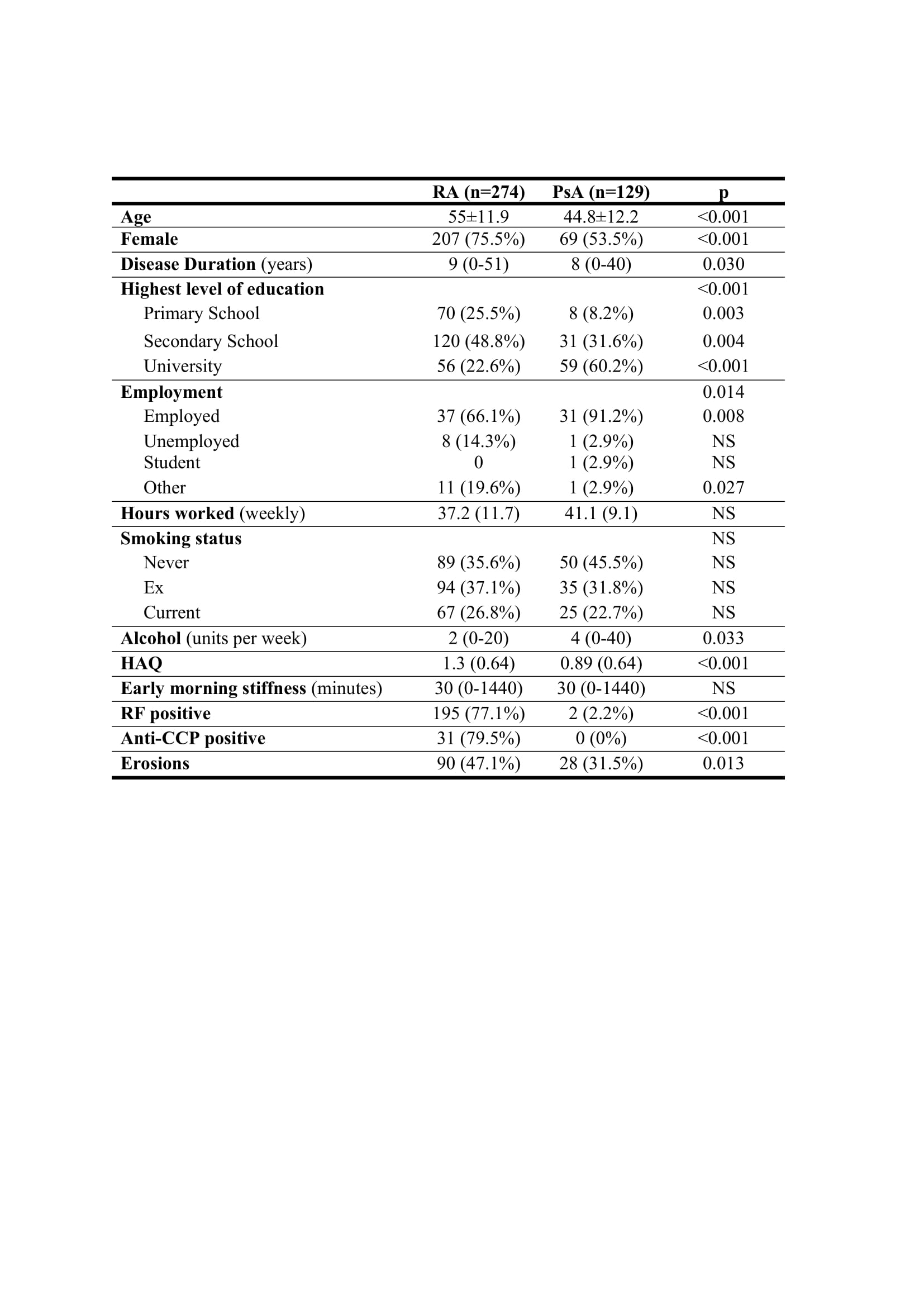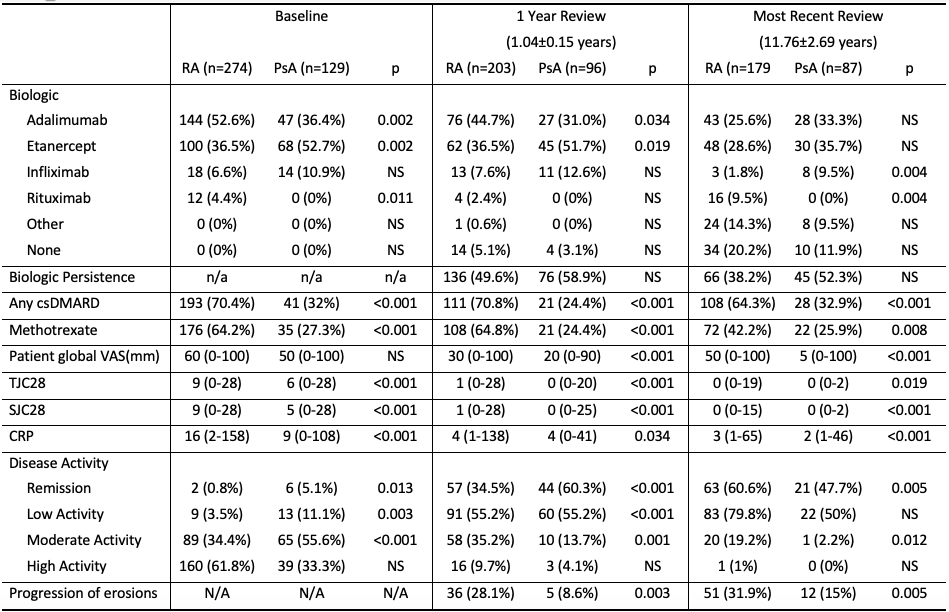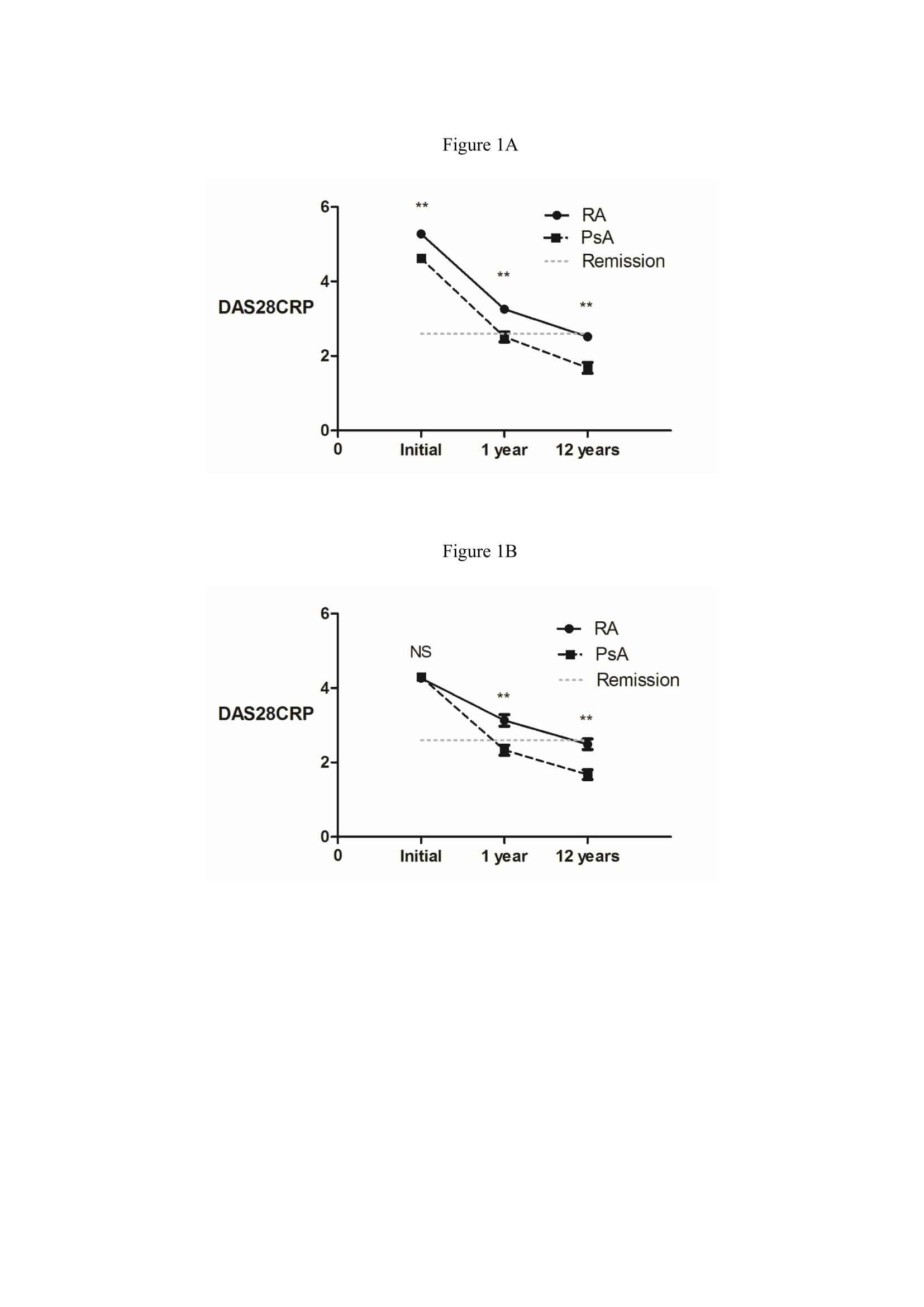Session Information
Date: Saturday, November 7, 2020
Title: RA – Treatments Poster II: Comparative Effectiveness, Biosimilars, Adherence & the Real World
Session Type: Poster Session B
Session Time: 9:00AM-11:00AM
Background/Purpose: Biologic therapies are widely used and greatly improve outcomes in RA and PsA. Yet, our ability to predict long-term remission and persistence remains limited. This study explores predictors of remission and persistence in patients 12 years after commencing biologic therapy.
Methods: RA (ACR criteria) and PsA (CASPAR criteria) patients were prospectively enrolled into a specific biologic clinic. Outcomes at the beginning of biologic therapy, at one year and at 12 years were reviewed. Predictors of biologic persistence and remission by EULAR criteria (DAS28-CRP < 2.6) were identified with univariate and multivariate analysis.
Results: RA patients tended to be older, predominantly female and have more severe disease at baseline (Table 1). When looking at disease activity, both groups showed significant clinical improvement (Table 2). DAS28-CRP remission was 91.3% in PsA and 60.6% in RA patients at 12 years (Figure 1). PsA patients had significantly better outcomes than RA patients, despite lower levels of methotrexate use. Multivariate analysis showed 12-year initial biologic persistence [OR 4.98 (95% CI 1.83-13.56)] and male gender [OR 4.48 (95% CI 1.25-16.01)] were predictors of remission. When looking for predictors of long-term persistence, one-year persistence [OR 4.28 (1.28-14.38)] and one-year low disease activity [OR 3.90 (95% CI 1.05-14.53)] were most predictive.
Conclusion: This is the first study to show better long term (12 year) outcomes with biologic therapy in PsA compared to RA. Persistence with initial biologic agent was high and predicted outcome. Persistence and low disease activity at one year predicted long term biologic persistence. Interestingly, PsA patients had higher levels of employment, educational attainment, alcohol use and long term remission rates.
 Table 1. Baseline demographics
Table 1. Baseline demographics
 Table 2. Medications and outcomes
Table 2. Medications and outcomes
 Figure 1. A comparison of mean DAS28-CRP by diagnosis in all patients (Figure 1A) and a cohort matched for baseline disease activity (moderate disease activity) (Figure 1B) (**p < 0.001)
Figure 1. A comparison of mean DAS28-CRP by diagnosis in all patients (Figure 1A) and a cohort matched for baseline disease activity (moderate disease activity) (Figure 1B) (**p < 0.001)
To cite this abstract in AMA style:
Murray K, Turk M, Alammari Y, Young F, Gallagher P, Saber T, Maguire S, O'Shea F, Fearon U, Veale D. Long Term Remission Rates from a Biologic Clinic: 12 Year Real World Data [abstract]. Arthritis Rheumatol. 2020; 72 (suppl 10). https://acrabstracts.org/abstract/long-term-remission-rates-from-a-biologic-clinic-12-year-real-world-data/. Accessed .« Back to ACR Convergence 2020
ACR Meeting Abstracts - https://acrabstracts.org/abstract/long-term-remission-rates-from-a-biologic-clinic-12-year-real-world-data/
